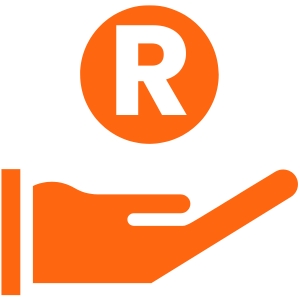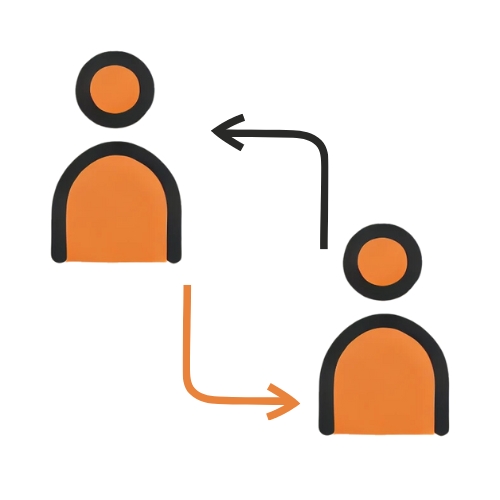
Unregistered credit providers, commonly referred to as loan sharks or mashonisas, continue to exploit South Africans facing financial hardship. It is estimated that there are nearly 50,000 of these informal lenders operating across the country. The term mashonisa comes from the Zulu word shonisa, meaning to impoverish—an apt description given the excessive interest rates they charge, which often range between 50% and 120%. These practices place a severe burden on the most financially vulnerable individuals, trapping many in ongoing cycles of debt.
Key Takeaways
- Unregistered and Risky: Mashonisas operate without being registered with the National Credit Regulator, often charging interest rates between 50% and 120%. Their lack of oversight and aggressive recovery methods make them a high-risk option for borrowers.
- No Legal Protection: Loans from mashonisas are not enforceable in court, and borrowers have no access to formal dispute resolution channels. This leaves consumers vulnerable to exploitation and abuse.
- Better Alternatives Exist: Regulated options such as microfinance institutions, credit unions, banks, and government programmes offer safer and more affordable credit. These alternatives provide consumer protection, clearer terms, and more manageable repayment plans.
What is a Mashonisa
Mashonisa is a Zulu term referring to a loan shark—an individual who provides credit at very high interest rates, usually imposes harsh repayment conditions, and typically operates without formal regulation or approval from local financial authorities.
Mashonisas do not hold registration with the National Credit Regulator (NCR). While this does not automatically render their lending practices unlawful, it does mean they operate without formal regulatory supervision.
This absence of oversight places greater risk on borrowers, as there is no recognised authority to escalate complaints to, particularly in instances of unlawful conduct or unethical lending behaviour.
Mashonisa loans are generally short-term lending arrangements, often spanning periods from one to six months. Loan amounts can start from as little as R50 and may extend to R8 000 or more, depending on the lender—though in some cases, significantly higher sums may be issued.
About Arcadia Finance
Need a loan? Arcadia Finance makes it easy. Skip the stress — no application fees, just quick access to 19 trusted lenders approved by South Africa’s National Credit Regulator. Get the right loan, right when you need it.
Legal Status of Mashonisa Lending in South Africa
In South Africa, the National Credit Act (NCA) No. 34 of 2005 sets the legal framework for credit provision, requiring all lenders to register with the National Credit Regulator (NCR). While not every informal lender is automatically acting unlawfully, most mashonisas operate outside this legal framework, putting borrowers at risk.
Key points to consider include:
- NCR Registration Required: Any person or business offering credit must register with the NCR, regardless of the loan amount or frequency. Mashonisas typically do not comply with this requirement.
- Unlawful Credit Agreements: If a lender is not registered with the NCR, any credit agreement they enter into is unlawful and cannot be enforced in court.
- No Affordability Checks: The NCA requires all credit providers to conduct affordability assessments before granting loans. Mashonisas usually skip this step, increasing the likelihood of over-indebtedness.
- Excessive Interest Rates: The NCA sets maximum interest rates and fee structures. Mashonisas often charge well above these legal limits—sometimes over 100%—which is not permitted under the Act.
- No Consumer Protection: Borrowers dealing with mashonisas have no legal recourse if they face harassment, threats, or unethical practices, as these lenders fall outside the regulated credit system.
Mashonisas are not automatically breaking the law by existing, but their common practices—operating without registration, ignoring legal caps, and avoiding affordability checks—mean they generally operate illegally under the NCA.
DISCLAIMER: The content of this article is based on publicly available information from the National Credit Act (NCA) as of the date of publication. Legal standards and interpretations may change, and the enforcement of specific provisions may vary depending on the circumstances.
How They Operate
Unregistered lenders generally provide very small loan amounts, usually ranging from R50 to R5 000, and these are issued over short repayment periods.
Their interest charges are typically applied as a flat fee. For example, if you borrow R1 000 and they impose a 50% interest rate, you will be expected to repay R1 500. A 60% interest rate would mean repaying R1 600, and so on. Many of these lenders charge up to 100% interest, which means you would need to repay double the amount borrowed. In this case, borrowing R1 000 would require a repayment of R2 000.
Why Are Mashonisas Considered Risky?
Mashonisas pose serious financial and personal risks for several reasons:

Excessive Interest Charges
Mashonisas often impose extremely high-interest rates—frequently above legal limits. This can result in borrowers repaying far more than the original loan amount, making it difficult or impossible to settle the debt in full.

Threats and Intimidation
In many cases, mashonisas resort to aggressive methods to recover money owed. These may include harassment, verbal abuse, physical threats, damage to personal property, or even targeting the borrower’s family or workplace.

Lack of Regulation
Mashonisas generally operate outside the formal financial system and are not bound by lending regulations. As a result, borrowers are not protected by consumer rights or formal dispute processes. Common practices include charging hidden fees, using falsified documentation, or making unlawful threats.

Debt Trap Risk
Those unable to repay may feel compelled to borrow more money—either from the same mashonisa or another one—to cover the original debt. This often leads to a repetitive borrowing cycle, which can result in long-term financial hardship or personal insolvency.
Borrowing from mashonisas is illegal in many jurisdictions, including South Africa, and can lead to serious consequences for both the borrower and the lender. If you are experiencing financial difficulty, it is advisable to approach registered financial institutions or recognised non-profit organisations for legitimate and safer alternatives.
How To Identify A Loan Shark
A loan shark refers to any individual or business that lends money or offers credit without complying with the legal obligations required of authorised credit providers. Below are three key warning signs that can help you identify a loan shark.
No NCR Registration Certificate
All credit providers in South Africa are required under the National Credit Act (NCA) to register with the National Credit Regulator (NCR). They must also display their NCR registration certificate clearly at their business premises. This certificate will include their unique NCRCP number, which can be used when lodging complaints with the NCR.
If a credit provider does not have this certificate visible or cannot produce their NCRCP number upon request, it is a strong indication that they are not legally registered. Any loan agreement entered into with an unregistered lender—such as a loan shark—is considered unlawful and cannot be enforced in court.
No Affordability Assessment
The NCA also requires registered lenders to carry out proper affordability assessments before granting any credit. This process involves reviewing financial documents such as your latest payslips or bank statements to confirm whether you can reasonably afford to repay the loan.
If a lender offers you a loan without asking for any supporting documents to assess your financial situation, this is another warning sign. Bypassing affordability checks is typical behaviour of a loan shark.
Illegal Loan Advertisements
Loan sharks often promote their services through unlawful advertisements aimed at vulnerable consumers. These ads may contain phrases such as “blacklisted applicants welcome” or “no credit checks needed”, which are both misleading and prohibited.
These types of adverts do not comply with legal advertising standards and should be treated with caution. No matter your circumstances, avoid responding to such ads, as they are commonly linked to illegal lending practices.
Mashonisa vs. Registered Credit Providers
| Feature | Mashonisa (Loan Shark) | Registered Credit Provider |
|---|---|---|
| Registration with NCR | Not registered with the National Credit Regulator (NCR) | Must be registered with the NCR and display NCRCP number |
| Interest Rate Caps | No legal limit – often charge between 50% and 120% | Subject to interest rate limits set by the National Credit Act (NCA) |
| Affordability Checks | Rarely conduct any affordability assessments | Legally required to conduct affordability checks using documents like payslips or bank statements |
| Dispute Resolution | No formal complaint mechanism or regulatory oversight | Consumers can escalate disputes to the NCR or National Consumer Tribunal |
| Legal Enforceability | Loan agreements are unlawful and not enforceable in court | Loan agreements are legally binding and enforceable |
Borrowing from a registered credit provider means you are protected by South African credit laws, have access to regulated interest rates, and can raise complaints if your rights are violated. Mashonisa loans offer none of these safeguards and often lead to financial exploitation.
DISCLAIMER: Borrowing money from unregistered lenders may result in serious financial and legal consequences. We strongly encourage consumers to seek credit only from registered financial institutions or verified non-profit organisations.
What Are the Alternatives to Mashonisa Loans?
If you are in need of financial assistance, there are several options besides Mashonisa loans that may be more affordable and secure. These alternatives can provide access to credit with more regulated terms and protections. Below are a few options worth considering:

Microfinance Institutions
Microfinance providers offer small loans to individuals who may not qualify for traditional banking services. These loans are often designed for specific purposes such as starting a small business or covering urgent expenses. Interest rates and repayment terms tend to be more manageable than those typically associated with Mashonisa lenders.

Credit Unions
Credit unions are not-for-profit financial institutions owned by their members. They offer a variety of services including loans, savings accounts, and transactional banking. Loan interest rates are usually lower, and the overall service is more customer-focused compared to commercial banks or informal lenders.

Peer-to-Peer Lending Platforms
These platforms connect borrowers directly with individual lenders online. While availability may vary, interest rates can be more competitive, and repayment conditions may be more flexible than what is usually found with Mashonisa loans. However, borrowers should check the platform’s terms and the credibility of the lender.

Personal Loans from Banks
Most South African banks offer unsecured personal loans to qualifying applicants. If you meet the credit criteria, this can be a safer and more structured alternative. Repayment periods are usually longer, and interest rates are more transparent than with informal loan arrangements.

Government Support Programmes
For those experiencing financial hardship, various government schemes might offer short-term relief. This can include grants, subsidised loans, or emergency assistance, depending on your circumstances. It is advisable to check with official government websites or local offices to find out what is currently available.
Conclusion
Mashonisa loans may offer quick access to cash, but the risks far outweigh the short-term relief they provide. With excessive interest rates, no consumer protection, and aggressive collection tactics, these unregulated lenders can push borrowers deeper into financial distress. South Africans are strongly advised to avoid mashonisas and instead seek support through registered credit providers, non-profit organisations, or government assistance. Legal lending options offer clearer terms, regulated interest rates, and access to proper complaint processes—providing far more security for those in need of credit.
Frequently Asked Questions
A mashonisa is an informal and unregistered lender who provides small, short-term loans, typically at extremely high interest rates. These individuals operate outside of the formal financial system and are not regulated by the National Credit Regulator (NCR), which means their practices often lack transparency and legal safeguards.
Borrowing from a mashonisa is not a criminal act, but the loan agreement itself is not legally valid. Because mashonisas are unregistered, any credit arrangement with them is considered unlawful and cannot be enforced in court. This also means borrowers are left without legal protection or support in the event of disputes.
If you believe a mashonisa is acting unlawfully or has threatened you, you can report them to the National Credit Regulator (NCR). You may also report serious misconduct, such as harassment or intimidation, to your nearest South African Police Service (SAPS) station. Supporting documentation or evidence will help strengthen your case.
No, mashonisas have no legal authority to seize your assets, deduct money from your salary, or take your bank card or ID. If they do so, this may constitute harassment, theft, or intimidation—all of which are criminal offences and should be reported immediately.
If you’re in need of financial assistance, it is safer to approach a registered credit provider, such as a bank, credit union, or microfinance institution. These lenders are regulated under the National Credit Act and offer more transparent terms, reasonable interest rates, and access to dispute resolution channels. Government support programmes may also be available depending on your situation.







